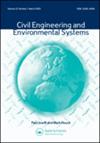At one with systems
IF 1.1
3区 工程技术
Q3 ENGINEERING, CIVIL
引用次数: 0
Abstract
A number of contributions in the Special Issue on a Civil Engineering Systems Body of Knowledge (‘Special Issue’ – Dias and Jowitt 2020), refer to education as it relates to systems, and systems thinking. For example, Masterton and Jeffrey (2020), Delatte (2020) and Jowitt (2020). Based on observations over many years, some personal views are expressed here on the topic. The observations have not been processed through the scientific method (Carmichael 2013), but they do have the support of much classroom testing and noting the behaviour of practising engineers. An observation (based on a finite sample) is put forward to generate thought and discussion within the systems community; not everyone may have observed the same or agree with it, while others may think it is self-obvious: Some people naturally think in terms of systems and some people do not naturally think in terms of systems. This has ramifications for systems education, any expectation of systems-type thinking from people, and the place of systems courses in a Civil Engineering programme. It appears that people are either configured or receptive to systems ideas, exampled by the Special Issue papers (even if the detail is not agreed with), or they are not. It also follows in a sort of corollary fashion that those who are not attuned to systems thinking will take issue with the above observation, or not appreciate that there is a difference between systems thinking and non-systems thinking. This is not a nature versus nurture argument. Some people may use the word ‘system’ (often where a more appropriate term should be used) and other system-discipline words, draw block diagrams with links, apply linear programming or some simulation package, etc and generally look and sound as though they are thinking systems, but underneath they are not thinking systems. Some publications may purport to be systems-based but they are not. There may also not be a realisation on the part of authors and reviewers that they are not truly systems people, though they may have a self-belief that they are. People who are not systems people seem not to be able to distinguish genuine systems thinking from non-genuine systems thinking, and people who do not naturally think in terms of systems cannot be successfully taught to be systems people. At best, they can be led in a direction. This viewpoint, of course, is difficult to prove because currently there is no accepted measure for systems thinking; this is expanded upon below. To illustrate, consider a parallel with ‘creativity’. People are either creative or not creative, even allowing for creativity manifesting itself in a variety of ways and pursuits. Oscar与系统一致
《土木工程系统知识体系特刊》(“特刊”- Dias和Jowitt 2020)中的许多文章都提到了与系统和系统思维相关的教育。例如Masterton and Jeffrey (2020), Delatte(2020)和Jowitt(2020)。根据多年来的观察,在此就这个问题发表一些个人看法。这些观察结果并没有通过科学的方法进行处理(Carmichael 2013),但它们确实得到了许多课堂测试的支持,并注意到执业工程师的行为。提出了一个观察(基于有限样本),以在系统社区内产生思考和讨论;并不是每个人都观察到相同或同意它,而其他人可能认为这是不言而喻的:有些人自然地从系统的角度来思考,有些人则不自然地从系统的角度来思考。这对系统教育、人们对系统型思维的任何期望以及系统课程在土木工程课程中的地位都有影响。看起来人们要么被配置好了,要么接受了系统的想法,例如特刊的论文(即使细节不一致),要么他们不是。它还以一种必然的方式遵循,那些不适应系统思维的人将对上述观察提出质疑,或者不认识到系统思维和非系统思维之间存在差异。这不是先天与后天的争论。有些人可能会使用“系统”一词(通常应该使用更合适的术语)和其他系统学科词汇,绘制带有链接的框图,应用线性规划或一些模拟包等,通常看起来和听起来好像他们是思考系统,但实际上他们并不是思考系统。一些出版物可能声称是基于系统的,但它们不是。作者和审稿人可能也没有意识到他们不是真正的系统人员,尽管他们可能相信自己是。不是系统人的人似乎无法区分真正的系统思维和非真正的系统思维,而那些天生不从系统角度思考的人也无法被成功地培养成系统人。充其量,他们可以被引导到一个方向。当然,这种观点很难证明,因为目前还没有公认的衡量系统思维的标准;这将在下面展开。为了说明这一点,请考虑与“创造力”的相似之处。人要么有创造力,要么没有创造力,甚至允许创造力以各种方式和追求表现出来。奥斯卡
本文章由计算机程序翻译,如有差异,请以英文原文为准。
求助全文
约1分钟内获得全文
求助全文
来源期刊

Civil Engineering and Environmental Systems
工程技术-工程:土木
CiteScore
3.30
自引率
16.70%
发文量
10
审稿时长
>12 weeks
期刊介绍:
Civil Engineering and Environmental Systems is devoted to the advancement of systems thinking and systems techniques throughout systems engineering, environmental engineering decision-making, and engineering management. We do this by publishing the practical applications and developments of "hard" and "soft" systems techniques and thinking.
Submissions that allow for better analysis of civil engineering and environmental systems might look at:
-Civil Engineering optimization
-Risk assessment in engineering
-Civil engineering decision analysis
-System identification in engineering
-Civil engineering numerical simulation
-Uncertainty modelling in engineering
-Qualitative modelling of complex engineering systems
 求助内容:
求助内容: 应助结果提醒方式:
应助结果提醒方式:


